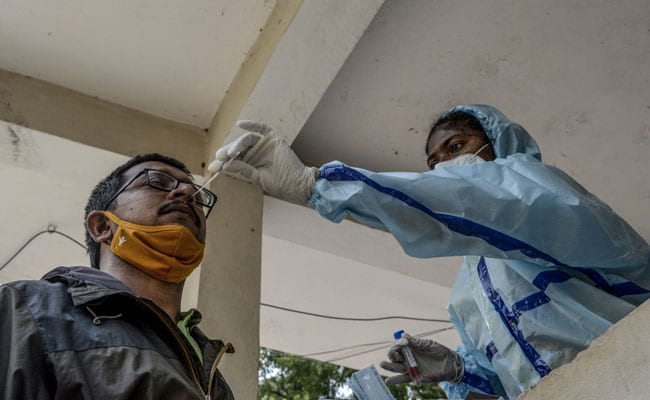
With 837 deaths in the last 24 hours, the total death count has reached 1,12,998.
With a spike of 62,212 new cases and 837 deaths in the last 24 hours, India's COVID-19 count reached 74,32,681 on Saturday according to the Ministry of Health and Family Welfare.
According to the Union Health Ministry, the active cases have dropped below the 8 lakh mark for the first time in one-and-a-half months.
As per the Ministry, the COVID-19 count includes 7,95,087 active cases and 65,24,596 cured/discharged/migrated cases. With 837 deaths in the last 24 hours, the total death count due to the disease has reached 1,12,998.
"This significant achievement is the outcome of Centre-led targeted strategies leading to a high number of recoveries and steadily falling number of fatalities," the Ministry said.
Here are the Updates on Coronavirus (COVID-19) Cases:
A total of 1,992 new COVID-19 cases were reported in Rajasthan on Saturday taking the total count of reported cases to 1,71,281.
State Health Department said 12 more people succumbed to the virus taking the death toll in the state to 1,735.
According to the State Health Department, of 1,992 new cases, 372 were reported in Jaipur. The state has 21,255 active cases.
The global coronavirus caseload now stands at 39.5 million cases, according to the latest updates provided by Johns Hopkins University.
According to the University tracker, there are 39,502,909 COVID-19 cases globally and 1,106,705 patients globally have succumbed to the virus.
Globally, 27,148,927 patients infected from the virus have recovered, the tracker states.
The US continues to be the worst-affected country due to the virus with 8,086,780 cases and 218,980 fatalities, which are the most deaths in the world.
As many as 3,197,539 patients across the US have recovered from the disease.
World Health Organisation Chief Scientist Sowmya Swaminathan on Saturday said clusters and large gatherings which have the potential of spreading COVID-19 need to be identified and suggested continuous testing of samples by the government.
With a huge population in a country like India, she said, one has to go after the virus in order to control its spread before it becomes a community transmission.
"When we look at countries that have succeeded (in controlling the spread of virus) we have to go after the virus where it is present. Then it is easier (to prevent the spread of virus) than it becomes a community transmission," she said.




